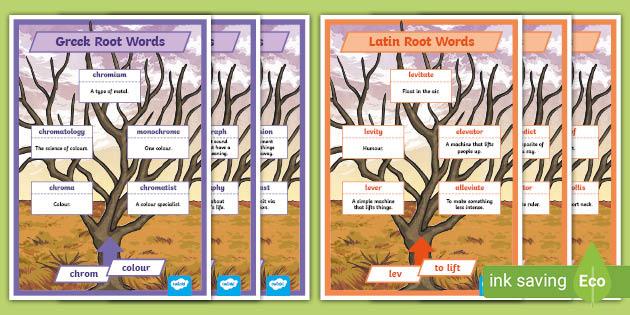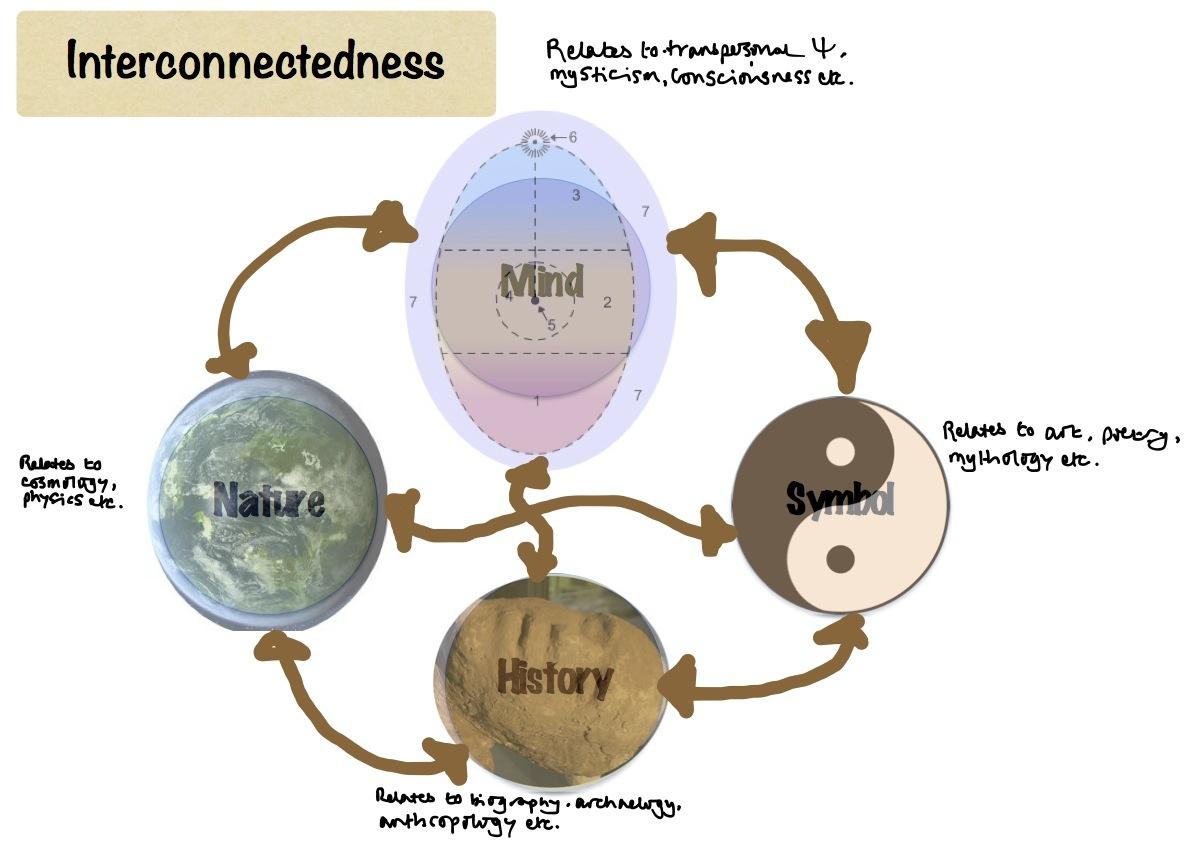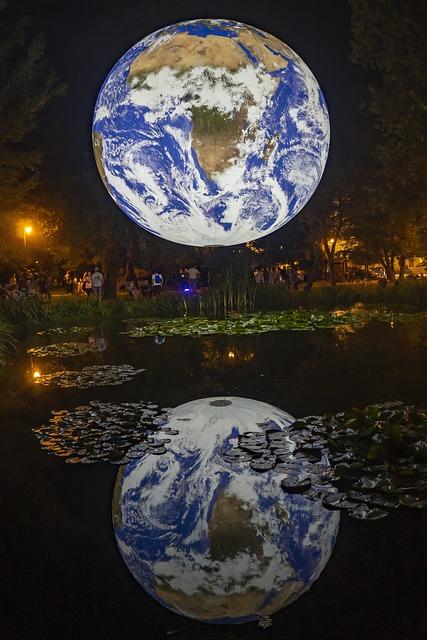Table of Contents
- Understanding the Gaia Hypothesis and Its Origin
- Exploring the Etymology of Gaia: A Journey Through Time
- The Interconnectedness of Life: What Gaia Represents
- Implications of the Gaia Hypothesis for Environmental Sustainability
- Practical Steps to Embrace Gaias Principles in Daily Life
- Q&A
- Future Outlook
Understanding the Gaia Hypothesis and Its Origin
The Gaia Hypothesis, a captivating theory proposed by British scientist James Lovelock in the 1970s, suggests that the Earth functions as a self-regulating organism. This concept stems from the ancient Greek goddess Gaia, who personified the Earth itself. By invoking this name, Lovelock emphasized the interconnectedness of biological and physical components of our planet, underscoring how living organisms and their inorganic surroundings work together to maintain conditions conducive to life. The hypothesis challenges traditional views of biology and ecology by promoting a holistic perspective on environmental health.
At its core, the Gaia Hypothesis posits that life significantly influences the Earth’s environment to maintain a habitable state. This idea can be broken down into several key principles:
- Self-Regulation: The Earth has mechanisms that regulate its climate and composition.
- Interdependence: All living organisms depend on one another and their surroundings for survival.
- Feedback Loops: Changes in one system can create responses in another, leading to equilibrium.
This holistic view has sparked both scientific inquiry and philosophical contemplation, leading to various interpretations and expansions of the original hypothesis. In contemporary discussions, the Gaia Hypothesis not only informs ecological research but also raises critical questions about humanity’s role in environmental stewardship. As awareness of climate change and ecological crises grows, the principles embedded in the Gaia Hypothesis highlight the urgency for sustainable practices and deeper understanding of our planet’s intricate systems.

Exploring the Etymology of Gaia: A Journey Through Time
The term *Gaia* originates from ancient Greek mythology, where it personifies the Earth as a primordial goddess, symbolizing fertility and the nurturing aspect of nature. The name itself, derived from the Greek word Gaia, translates to “land” or “earth.” This linguistic heritage reflects the interconnectedness of the planet’s ecosystems and the life forms that inhabit them. The ancients viewed Gaia not just as a lifeless rock but as a living entity, highlighting a belief in the Earth’s vitality and resilience. This perspective forms the foundational essence of the Gaia Hypothesis, which posits that the Earth functions as a self-regulating system, intertwined with the diverse life it supports.
As the Gaia Hypothesis gained traction in the 20th century through the work of scientists like James Lovelock, the name’s implication evolved, intertwining scientific inquiry with philosophical introspection. Lovelock proposed that living organisms interact with their inorganic surroundings to maintain the conditions for life, essentially making the Earth a single, adaptive entity. This notion transitioned *Gaia* beyond myth into a modern context, encouraging an exploration of how biological systems contribute to the stability and health of our planet’s environment. Thus, the etymological roots of *Gaia* resonate deeply with contemporary environmental discourse.
| Aspect | Description |
|---|---|
| Mythological Origin | Personification of the Earth in Greek mythology. |
| Translation | “Land” or “Earth” in Greek. |
| Scientific Relevance | Concept of Earth as a self-regulating system. |
| Key Proponent | James Lovelock. |
This journey through time encapsulates the evolution of *Gaia* from its mythological roots to its current significance within ecological studies and environmental activism. As we delve deeper into the implications of the Gaia Hypothesis, it becomes increasingly evident that understanding our planet’s name—and the history behind it—enriches our appreciation of its complexity and fragility. The ideas surrounding Gaia compel us to contemplate our role within this intricate web of life, urging a respectful stewardship towards our shared home.

The Interconnectedness of Life: What Gaia Represents
The concept of Gaia, derived from the ancient Greek goddess of the Earth, embodies the idea of our planet as a living, self-regulating entity. This notion suggests that all living organisms and their inorganic surroundings are interconnected, forming a complex web of life that sustains the planet’s ecosystems. Through this lens, the Earth functions not merely as a backdrop for human activity but as a dynamic, interdependent system where each component plays a vital role in maintaining balance and promoting survival.
At the heart of the Gaia hypothesis is the belief that life influences the Earth’s environment in ways that create optimal conditions for life itself. This leads to several critical themes, including:
- The balance of ecosystems: Each species contributes to the stability of its ecosystem.
- Feedback loops: Interactions between organisms can lead to changes that enhance or diminish conditions favorable for life.
- Resilience: The planet exhibits a remarkable ability to recover from disturbances, showcasing its inherent strength and adaptability.
This holistic perspective encourages a deeper understanding of our responsibilities as stewards of the Earth. By recognizing our integral role within this grand tapestry, we can cultivate an ethos of sustainability that promotes the well-being of all life forms. The Gaia hypothesis compels us to reflect on our interactions with nature, driving home the message that the health of our planet directly impacts our own survival and quality of life.

Implications of the Gaia Hypothesis for Environmental Sustainability
The Gaia Hypothesis presents a revolutionary view of the Earth as a self-regulating entity, wherein the biosphere, atmosphere, geosphere, and hydrosphere interact symbiotically. This perspective has significant implications for environmental sustainability, challenging conventional attitudes towards nature. By recognizing that all living organisms and their inorganic surroundings are deeply interconnected, the hypothesis encourages a holistic approach in environmental management. It implies that disrupting any one component can lead to cascading effects on others, thereby emphasizing the need for policies that consider the ecosystem as an integrated whole.
Furthermore, adopting the principles of the Gaia Hypothesis can inspire sustainable practices in various sectors, such as agriculture, energy, and urban development. For instance, farmer methodologies that focus on permaculture and regenerative agriculture mirror the self-regulation seen in natural systems. These practices not only enhance soil health but also promote biodiversity: two essential components of a sustainable ecosystem. In urban settings, integrating green spaces and biodiversity can help mitigate urban heat effects while improving air quality, exemplifying the need for urban planners to think about environmental systems holistically.
Moreover, the Gaia Hypothesis advocates for a deeper ethical responsibility towards nature. Understanding that human actions are intrinsically linked to ecological health compels society to re-evaluate its consumption patterns and resource utilization. This could manifest as community-led initiatives aimed at reducing waste, promoting renewable energy sources, and restoring natural habitats. In shaping policies, decision-makers must balance development with ecological integrity, recognizing that the well-being of humanity is ultimately tied to the vitality of the planet.

Practical Steps to Embrace Gaias Principles in Daily Life
Embracing the principles of Gaia in our everyday lives doesn’t have to be overwhelming. Small, intentional changes can make a significant difference. Start by connecting with nature. Whether it’s a stroll in the park, tending to a garden, or simply enjoying the fresh air, these moments foster a deeper appreciation for the ecosystem we are part of. Additionally, consider practicing mindfulness to enhance your awareness of the interconnectedness of all life forms. This could involve meditation in natural settings or engaging in activities that celebrate biodiversity.
Implementing sustainable practices is another crucial step. You can begin by reducing waste and being mindful of consumption. Consider adopting habits such as:
- Recycling and composting to minimize landfill contributions.
- Choosing reusable products, like bags and water bottles, over single-use items.
- Supporting local businesses that prioritize sustainable goods and practices.
Moreover, educating yourself and others about environmental issues can build a community committed to Gaia’s principles. Sharing knowledge through workshops or social media can inspire collective action. Creating a simple table to outline daily practices can also keep you committed and motivated:
| Practice | Frequency | Impact |
|---|---|---|
| Nature Walks | Daily | Enhanced connection with the environment |
| Mindful Eating | Weekly | Reduced carbon footprint |
| Community Volunteering | Monthly | Promoting local ecosystem health |
Q&A
Q&A: Understanding the Gaia Hypothesis and Its Name Meaning
Q: What is the Gaia Hypothesis? A: The Gaia Hypothesis is a scientific theory, popularized by James Lovelock in the 1970s, that posits the Earth and its biological systems behave as a single, self-regulating entity. According to this hypothesis, living organisms interact with their inorganic surroundings to maintain the conditions for life on the planet.Q: Why is it called the Gaia Hypothesis? A: The term “Gaia” comes from Greek mythology, representing the Earth goddess who embodies the planet itself. Lovelock chose this name to illustrate the interconnectedness of life and the Earth, suggesting that all living things contribute to a stable and life-sustaining environment.
Q: What does the name ‘Gaia’ symbolize in this context? A: In the context of the Gaia Hypothesis, ‘Gaia’ symbolizes balance, harmony, and the idea that life on Earth is interdependent. The name evokes the concept that the Earth is more than just a physical planet; it represents a complex, living system where organisms and their environment coexist symbiotically.
Q: How does the Gaia Hypothesis influence our view of ecology? A: The Gaia Hypothesis encourages us to see ecosystems as dynamic and interconnected. It highlights the significance of all living organisms and their roles in maintaining ecological balance, promoting a more holistic approach to environmental conservation and sustainability.
Q: Are there criticisms associated with the Gaia Hypothesis? A: Yes, some scientists criticize the Gaia Hypothesis for lacking empirical evidence and argue that it can anthropomorphize Earth’s systems. They contend that while ecological interactions are vital to life, they do not necessarily imply a conscious, self-regulating system.
Q: How can we apply the concepts of the Gaia Hypothesis in our daily lives? A: We can incorporate ideas from the Gaia Hypothesis by adopting sustainable practices, supporting biodiversity, and recognizing the impact of our actions on the planet. Understanding our role in the wider ecological system can lead to more environmentally-conscious choices and behaviors.
Q: What is the significance of the Gaia Hypothesis today? A: Today, the Gaia Hypothesis remains significant as it inspires discussions on climate change, environmental sustainability, and ecological responsibility. It serves as a reminder of our shared responsibility to protect and preserve the planet for future generations.



0 Comments